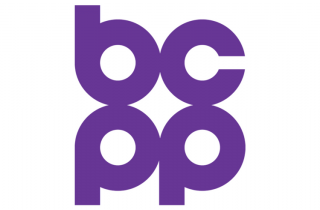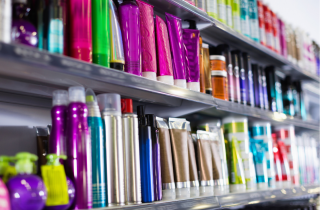Toxic-Free Cosmetics Act Would Ban Cosmetics With Chemicals Linked to Cancer or Reproductive Harm
Bill Would Ban 12 Highly Toxic Chemicals
FOR IMMEDIATE RELEASE
FEBRUARY 21, 2020
CONTACT:
Erika Wilhelm, Breast Cancer Prevention Partners (415) 539-5005
SACRAMENTO, Calif. – Yesterday, the California Assembly reintroduced the Toxic-Free Cosmetics Act (A.B. 2762). This important bill seeks to ban 12 extremely hazardous ingredients from beauty and personal care products sold in California including mercury, 4 types of formaldehyde, 2 phenylenediamine chemicals found in hair dye and some of the worst phthalates, parabens and PFAS “forever” chemicals. All of these chemicals are currently banned from cosmetic products sold in the European Union but are legally being used in cosmetic products sold in California and throughout the United States.
“These are chemicals where the science is undisputed as to the harm they cause to human health including breast and other cancers, birth defects, damage to the reproductive system, and harm to the developing brain in young children,” said Janet Nudelman, Director of Program and Policy at Breast Cancer Prevention Partners, one of the bill sponsors. “In fact, a recent study conducted by the National Institute for Environmental Health Sciences (NIEHS) showed that black women who frequently dye their hair face a 60% increased risk of breast cancer,” Nudelman continued. “This is especially appalling because black women already face the highest mortality rate from breast cancer of any U.S. racial of ethnic group.”
“Harmful chemicals such as mercury and formaldehyde have no place in our beauty products period,” said Nourbese Flint, Executive Director of Black Women for Wellness Action Project, one of the bill’s sponsors. “We know these chemicals are dangerous, and that they have a cumulative effect that disproportionately impacts communities of color, women and low-income working families. A.B. 2762 is an important step toward addressing health inequities linked to chemical exposures and we applaud the state legislature for reintroducing this important piece of legislation.”
Assembly Members Al Muratsuchi (D-Torrance), Bill Quirk (D-Hayward) and Buffy Wicks (D-Oakland) are joint authors of the Toxic-Free Cosmetics Act and were key supporters of an earlier iteration of the bill that, despite urgent requests by breast cancer survivors, researchers and public health advocates, failed to get out the Assembly Health Committee by one vote in January. In April 2019, a similar bill stalled in its first policy committee because of opposition by a handful of conventional cosmetics companies and their powerful trade association, the Personal Care Products Council (PCPC). Despite the PCPC’s opposition, more than two dozen clean cosmetic companies support the bill as well as dozens of leading environmental health and justice organizations.
“I want my daughter growing up in a state where I don’t have to be an expert toxicologist to know the soaps, face creams and toothpastes that are safe for her to use,” said Assembly Member Muratsuchi. “That is why I introduced A.B. 2762 – to get the most toxic chemicals out of the products we use on a daily basis.” California has seen many examples of the impact of toxic ingredients in beauty care products.
“A woman recently went into a coma a few miles from here because she used face cream contaminated with mercury,” said Assembly Member Wicks. “And right now there is nothing stopping that from happening again and again. I call on my colleagues to make sure we don’t wait any longer to address this critical issue.”
“Even as a nuclear scientist, I cannot discern what various cosmetic products contain and how they will affect me and my family; my wife has severe allergies to many hygiene products, and as a result, does not use cosmetics or scented products,” said Assembly Member Quirk. “The European Union has done the rigorous science to identify ingredients that are not safe for use in cosmetics. By following their science on chemical bans, we can ensure products sold in California are safe while also creating a more global standard for cosmetic safety.”
It’s been over 80 years since Congress last enacted federal cosmetic safety legislation. With no meaningful state or federal oversight of the safety of the over 10,000 ingredients used to formulate cosmetic products, consumers and workers are facing an unacceptable buyer beware situation when they shop for beauty or personal care products.
“Right now, each time we take a shower, put on makeup or go to the salon, we increase our risk of infertility and cancer. That is unacceptable. Now is the time for California to step up to get toxics out of our personal care products,” said Laura Deehan, public health advocate for the California Public Interest Research Group, another bill sponsor.
“More than 40 other nations protect their citizens from harmful cosmetics,” said Susan Little, with the Environmental Working Group, an A.B. 2762 bill sponsor. “But the U.S. has done little to ensure consumers are not exposed to unsafe ingredients in personal care products. A.B. 2762 would prevent cosmetics manufacturers from adding some of the most toxic chemicals to cosmetics sold in California.”
“The stakes couldn’t be higher, especially for the one in eight women who will experience breast cancer in her lifetime,” said Nudelman. “A.B. 2762 is a commonsense bill that would ban 12 of the most toxic chemicals from beauty products sold in California, nine of which are directly linked to breast cancer. This important bill takes us one step closer to preventing breast cancer before it starts by removing a major source of women’s ongoing exposure to some of the most toxic substances on the planet.”
###
A.B. 2762 is sponsored by the following non-profit organizations:
Breast Cancer Prevention Partners (BCPP) is the leading national science-based, policy and advocacy organization focused on preventing breast cancer by eliminating our exposure to toxic chemicals and radiation. Through translation of the science, public education, legislative advocacy and corporate accountability campaigns, BCPP occupies a unique niche at the nexus of environmental health, women’s health and breast cancer prevention. Learn more at www.bcpp.org.
Black Women for Wellness is committed to the health and well-being of Black women and girls through health education, empowerment and advocacy. Learn more at www.bwwla.org
CALPIRG, the California Public Interest Research Group, is a statewide non-profit organization that works to protect public health and consumers. Learn more at https://calpirg.org
The Environmental Working Group is a nonprofit, non-partisan organization that empowers people to live healthier lives in a healthier environment. Through research, advocacy and unique education tools, EWG drives consumer choice and civic action. www.ewg.org/safercosmetics/
Types: Press Release



